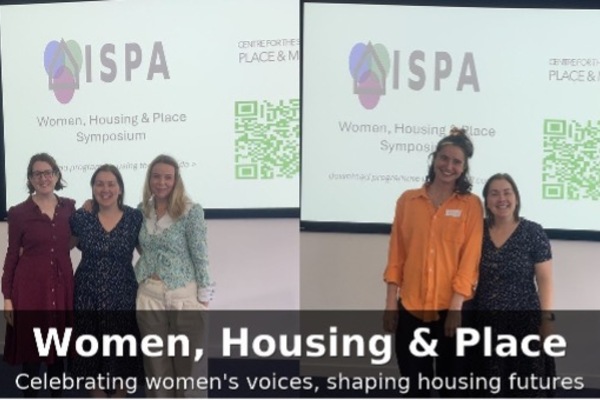
Last week over 600 urban sociologists descended on wind-swept, autumnal Leeds. The RC21 conference is an offshoot of the International Sociological Association focusing on the Sociology of Urban and Regional Development. This large, international conference provided the opportunity to step back and assess the global context for Housing Studies. A key focus was reflection on the legacy of the Global Financial Crisis (GFC) and the links to contemporary developments including Brexit and the Trump presidency.
The conference was titled ‘Rethinking Urban Global Justice’ and included an enormous range of topics and perspectives across more than 70 streams. Within this diversity there were many commonalities with Housing Studies. The most notable was discussion of financialisation which was a recurring theme at the 2017 Housing Studies Association conference. The first wave of financialisation occurred prior to the GFC with the development of global financial instruments such as Mortgage Backed Securities which trigged the sub-prime crisis in the United States.
Presentations demonstrated how different countries have responded to the legacy of private and public debt which emerged during the GFC. Several speakers reflected on the extent to which this can be seen as a second wave of financialisation. A common theme was the growth of transnational investors as both asset owners and landlords in recent years. Amy Castro-Baker from the University of Pennsylvania highlighted the mass purchase of foreclosed properties from the GFC by hedge funds in the United States. This has led to a partial housing market recovery, but no parallel improvement in the circumstances of individuals or local communities. Instead, Amy argued, they have experienced total loss of assets and are reliant on remote financial institutions which control their fate.
Stuart Hodkinson and Tim Joubert (University of Leeds) identified a comparable process in this country as UK asset resolution has begun to sell off mortgages taken on by the government during the GFC. These mortgages are being sold to international investors including Blackstone and Cerberus. Jacobo Abellan (Madrid University) highlighted the impact of a similar process in Spain. His research demonstrated the fear and uncertainty experienced by low income households in Madrid due to the actions of new, transnational landlords. A recurring theoretical theme was the role of financialisation in increasing distance between global financial actors and local contexts which is described in a recent article by Desiree Fields.
There is evidence from a range of countries that the GFC has not stopped the promotion of owner occupation. Thomas Samec (Charles University) described the way that discourses about mortgages have developed in The Czech Republic over the last twenty years to become dominant and normalised. Attempts to promote home ownership in Brazil through the Minha Casa, Minha Vida (my home, my life) programme were discussed by Mariana Fix (Unicamp). Credit ratings agencies such as Experian were identified as playing a pivotal role in the development of middle-class owner occupation in South Africa and other countries in the Global South (Julien Miggozzi, Grenoble Alpes).
Presentations also highlighted the different ways that global processes are expressed in various places and at particular times. A new book edited by Paul Watt and Peer Smets (Social Housing and Urban Renewal: A Cross-National Perspective) was launched at the conference and highlights this variation. Regeneration schemes can last for decades and the long-term impact on residents is a key theme of the book. Another theme from both the book and wider conference was that low-income households always retain agency – even in the face of impersonal, global forces.
However, many contributors highlighted how this agency has been stretched to the limit in some places. The levels of evictions in the United States has gained attention through Matthew Desmond’s recent book. A presentation by Elora Raymond (Clemson University) provided detailed evidence of the shocking levels of evictions from Atlanta, Georgia (working paper here). Her research indicates that 22 per cent of households in the city receive an eviction notice every year. That rises to half of all households in some, predominantly Black, zip code areas. This presentation and others, including one from the highly contrasting context of Sweden, highlighted how high levels of displacement can destroy people’s sense of home – even for those who do not move and are left behind. The notion of domicide – the deliberate destruction of home – emerged from several presentations as a way of theorising this situation.
Practical and policy responses were also discussed at RC21 which retains close ties to activism. Responses included informal, community based approaches from Community Land Trusts in UK to anti-eviction movements in the United States. Mass movements have emerged in response to housing problems in some places, most notably Spain. Over time these have morphed into a ‘new municipalism’ with academics and activists ‘daring to do politics’ particularly at the local level. Activists turned politicians in Berlin have secured a promise to build 100,000 new units of municipal housing. But in many other places deep housing problems have not led to mass movements or policy change. The limits of local responses are also clear as they encounter national and international financial or legislative barriers – particularly in relation to private renting and homeownership. Brexit and the Trump election are not random events, but deeply interconnected with wider social, economic and political changes.
Finally, the role of the academic was present in many discussions at the conference. The long-term approach of Spanish activists was impressive with the motto “we go slow, because we go far”. There was also a challenge for academics to retain their critical edge. This includes self-reflection on why we choose to study specific topics and how we position ourselves in our research. The situation of Turkish presenters brought this challenge home. A group of Turkish academics were prevented from attending the conference due to their perceived involvement in national politics – even if this was only signing a petition. Perhaps this was the most important lesson from RC21: the privilege and responsibility of academics in the UK.
Dr Ben Pattison, Sheffield Hallam University @BMPattison @CRESR_SHU
18th September 2017






